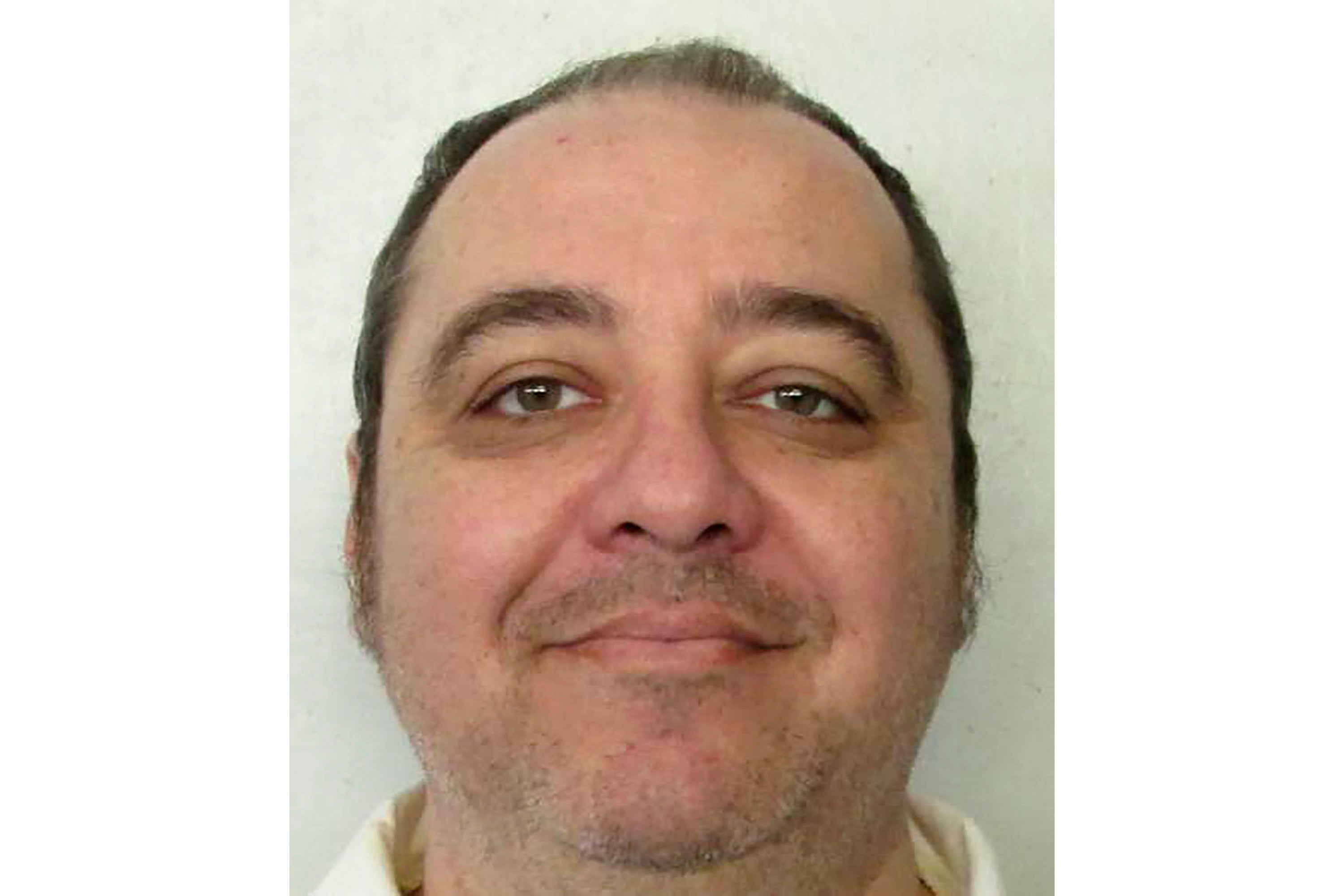Kenneth Eugene Smith is about to be executed by nitrogen gas. How can it be stopped?
The US Supreme Court and a lower appeals court both declined to block Smith’s execution on Wednesday
Your support helps us to tell the story
From reproductive rights to climate change to Big Tech, The Independent is on the ground when the story is developing. Whether it's investigating the financials of Elon Musk's pro-Trump PAC or producing our latest documentary, 'The A Word', which shines a light on the American women fighting for reproductive rights, we know how important it is to parse out the facts from the messaging.
At such a critical moment in US history, we need reporters on the ground. Your donation allows us to keep sending journalists to speak to both sides of the story.
The Independent is trusted by Americans across the entire political spectrum. And unlike many other quality news outlets, we choose not to lock Americans out of our reporting and analysis with paywalls. We believe quality journalism should be available to everyone, paid for by those who can afford it.
Your support makes all the difference.On Thursday 25 January, Kenneth Eugene Smith is set to become the first person in the world to be executed using nitrogen gas.
Smith was sentenced to death in 1996 after being convicted of capital murder for his role in the death of 45-year-old Elizabeth Sennett, a pastor’s wife in Colbert County.
The jury reached a verdict of 11 to 1 to sentence him to life in prison, but the judge overrode the panel’s decision – sending him to death row.
Back in November 2022, the state of Alabama attempted to execute Smith for the first time, but officials botched the procedure when they were unable to find a vein to administer the lethal injection.
Following that, Smith said he favoured the use of nitrogen gas – and an execution date was set.
Alabama Governor Kay Ivey set a 30-hour window of time for the execution to take place from 12am CT on 25 January to 6am CT on 26 January.
A tentative start time of 6pm CT on 25 January has been given.
With just hours to go before Smith’s scheduled execution, how can it be stopped?
On Thursday, lawyers for Smith are expected to make a last minute appeal to the US Supreme Court to try to halt his execution.
On Wednesday, Smith lost two last-minute bids to stay his execution, when both the US Supreme Court and a lower appeals court declined to block it.

But lawyers for Smith told the BBC on Wednesday night that they were lodging another appeal to the nation’s top court in the hope of a last-minute reprieve.
The appeal could see his execution halted in the 11th hour.
Opponents say using nitrogen can cause unnecessary suffering, and could cause Smith to choke on his own vomit.
Smith’s legal team described the execution method as a “cruel and unusual” punishment – and argued that the state might not have the right to try and put him to death for a second time.
“It is uncontroverted that ADOC inflicted actual physical and psychological pain on Smith by repeatedly trying (and failing) to establish IV access through his arms, hands, and by a central line as he was strapped to a gurney for hours,” his lawyers said in a court filing.
“Mr Smith’s was the third consecutive execution that ADOC botched or aborted for that same reason. ADOC’s failed attempt to execute Mr Smith caused him severe physical pain and psychological torment, including posttraumatic stress disorder,” the filing continued.
Smith, who has now been moved to the “death cell” in an Alabama Department of Corrections (ADOC) facility, also said he is not ready to be put to death with the untested treatment – given how his botched first execution attempt went.
“I am not ready for that. Not in no kind of way. I’m just not ready, brother,” Smith told The Guardian.
He revealed that, since the first execution attempt, he’s had a recurring nightmare where he is escorted back into the death chamber.
“All I had to do was walk into the room in the dream for it to be overwhelming. I was absolutely terrified,” he said. “It kept coming up.”
Meanwhile, officials in Alabama have argued that the nitrogen gas method is one of the most humane methods of execution because he will lose consciousness within seconds and die in a matter of minutes.
The Independent and the non-profit Responsible Business Initiative for Justice (RBIJ) have launched a joint campaign calling for an end to the death penalty in the US. The RBIJ has attracted more than 150 well-known signatories to its Business Leaders Declaration Against the Death Penalty – with The Independent as the latest on the list. We join high-profile executives such as Ariana Huffington, Facebook’s Sheryl Sandberg and Virgin Group founder Sir Richard Branson as part of this initiative and are making a pledge to highlight the injustices of the death penalty in our coverage.

Join our commenting forum
Join thought-provoking conversations, follow other Independent readers and see their replies
Comments